Course No. 8071 | .MP4, AVC, 2000 kbps, 854×480 | English, AAC, 192 kbps, 2 Ch | 12×27 mins | + PDF Guidebook | 4.15 GB
Lecturer: Professor Vejas Gabriel Liulevicius, Ph.D.
Communism has decisively shaped the modern world. After the Second World War, Marxist regimes ruled over one-third of the population of the globe. Even today, after the fall of the Soviet Union, communist ideas continue to steer current events in Eastern Europe and East Asia.
According to award-winning historian Professor Vejas Gabriel Liulevicius of the University of Tennessee, Knoxville, to understand the inner dynamics of communist thought and rule (and the reasons they linger in places like Cuba, North Korea, and China), you have to go back to the crucial beginnings of communism. How did it become such a pervasive economic and political philosophy? Why, of all places, did it first take root in early 20th-century Russia?
These and other questions all get addressed as part of a fascinating story that stretches from the intellectual partnership between Karl Marx and Friedrich Engels in the late 19th century to the Russian Revolution of 1917 to the death of Vladimir Lenin in 1924. It’s a story whose drama, Professor Liulevicius notes, “has few equals in terms of sheer scale, scope, or suffering.”
The Rise of Communism: From Marx to Lenin invites you to go inside communism’s journey from a collection of political and economic theories to a revolutionary movement that rocked the world. Rich with historical insights, these 12 lectures zero in on the “how” and “why” of the Bolsheviks rise to power and how communist ideas worked in theory and practice—and how they didn’t. You’ll meet thinkers and revolutionaries like Karl Marx, Rosa Luxemburg, and Leon Trotsky. You’ll unpack the meaning of texts like Das Kapital and The Communist Manifesto. And, you’ll experience the shock and awe of events including the Paris Commune and the October Revolution. After these 12 lectures, you’ll have a new and rewarding understanding of one of the most important—and problematic—economic and political philosophies of the modern age.
Unearth the Roots of Communist Thought
As shaped by Karl Marx, communism is defined as the abolition of private property. Along with this came the promise of social equality and a liberation from history’s record of struggle, exploitation, and suffering. “From each according to his ability,” Marx said, “to each according to his need.”
In The Rise of Communism: From Marx to Lenin, you’ll examine five internal contradictions within the philosophy of communism that recurs throughout the historical record, sometimes in different forms. They include:
The role of the individual in communism,
The geographical spread of communism,
The ties between communism and nationalism,
The evolution of communism into a tradition, and
The idea of communism as a political religion.
As the 12 lectures of this course examine events throughout decades of history, two main periods of time will be discussed.
In “The Spectre Haunting Europe” (named for the opening line of The Communist Manifesto), you’ll examine the utopian movements that influenced Marx and Engels, and how these leaders came to develop their revolutionary philosophies.
In “Lenin and the Founding of the Soviet Union,” you’ll discover how Lenin became the first person to put Marxist ideas into action by violently seizing power in the wreckage of the Russian tsarist empire and the chaos of the First World War.
Explore Decades of Political Turbulence
Moving chronologically through some of the most turbulent decades of modern history, The Rise of Communism: From Marx to Lenin explores terms, ideas, events, and people that you may have heard of in other historical surveys—but never delved into with such depth or insight.
Dialectical Materialism: Marx’s doctrine was based on historical (or dialectical) materialism and postulated the basis of reality as rooted in matter, not ideas. Human reality was, at base, economic—even if people were unaware of this. Thus, there could be no just law as such, but only a legal system protecting the interests of the ruling class.
The Paris Commune: The radical socialist government that ruled Paris for 10 weeks in 1871 (March 18-May 28) would become a template for understanding later revolutionary action. Despite its failure, the Paris Commune was viewed by Marx and Engels as the first living example of the “dictatorship of the proletariat.”
The Okhrana: After the 1881 assassination of Tsar Alexander II, the Okhrana (“guard department”) came into being. A secret police force organized to quell radicalism, the Okhrana also undertook psychological warfare operations. The organization is suspected to have written the notorious anti-Semitic text, The Protocols of the Elders of Zion.
Red October: Celebrated as the Great October Socialist Revolution, the 1917 seizure of power in Russia by Lenin and the Bolsheviks gave birth to a state devoted to the overthrow of all other world states. For this reason, some historians believe the Cold War didn’t begin after the Second World War but rather with this coup.
“The Internationale”: The song that became emblematic of international socialism was written during the Paris Commune by a Parisian transport worker. In the decades that followed, “The Internationale” became an inspiration to marchers, instilled fear in the ruling classes, and would later become the national anthem of the Soviet Union.
Crafted by a Knowledgeable Professor
While the topic of communism with its intricate links between philosophy and history might seem intimidating to tackle, Professor Liulevicius takes care to make the subject easy for anyone to understand.
A lecturer of some of the most popular modern history courses of the Great Courses, Professor Liulevicius has crafted another lecture series that offers an uncompromising look at one of the dominant political ideologies of the 20th century, exploring the origins of communist thought and the communist state.
The Rise of Communism: From Marx to Lenin is a fascinating, and sobering, study of how ideas and theories rise to power in a bid to create a new civilization—whatever the human cost. And it’s the first part of a lecture series of upcoming Great Courses by Professor Liulevicius that will continue the story of global communism. It’s the first chapter in a long story that would see the brutal rule of Joseph Stalin, the expansion of communism into Eastern Europe and Asia, and the eventual decline and fall of the Soviet Union.
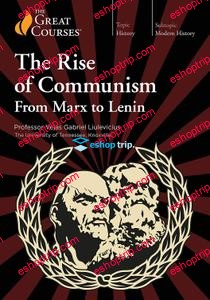




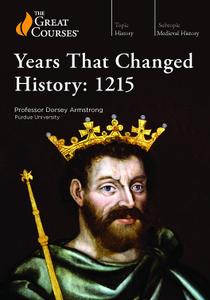
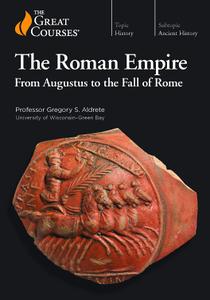

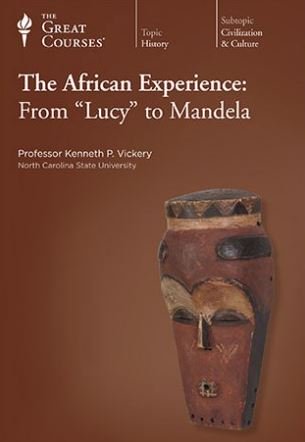
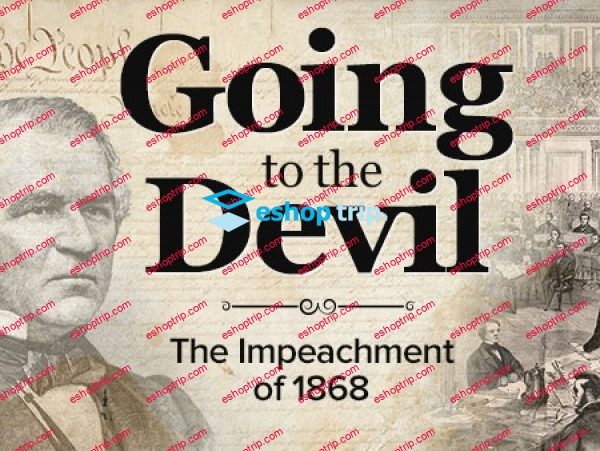

Reviews
There are no reviews yet.